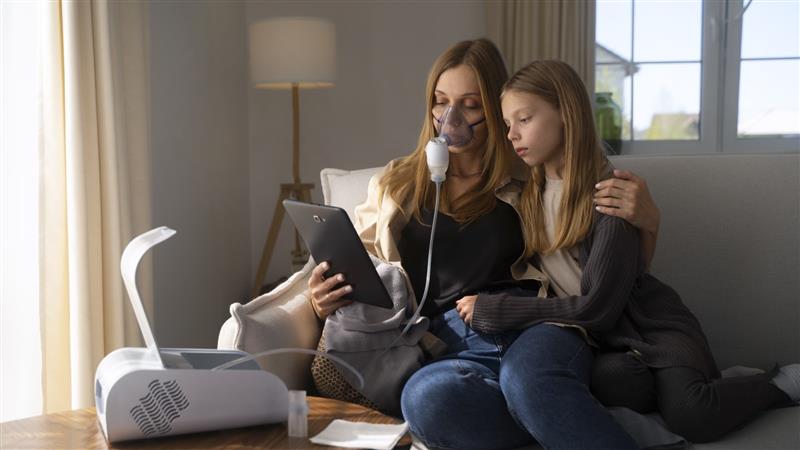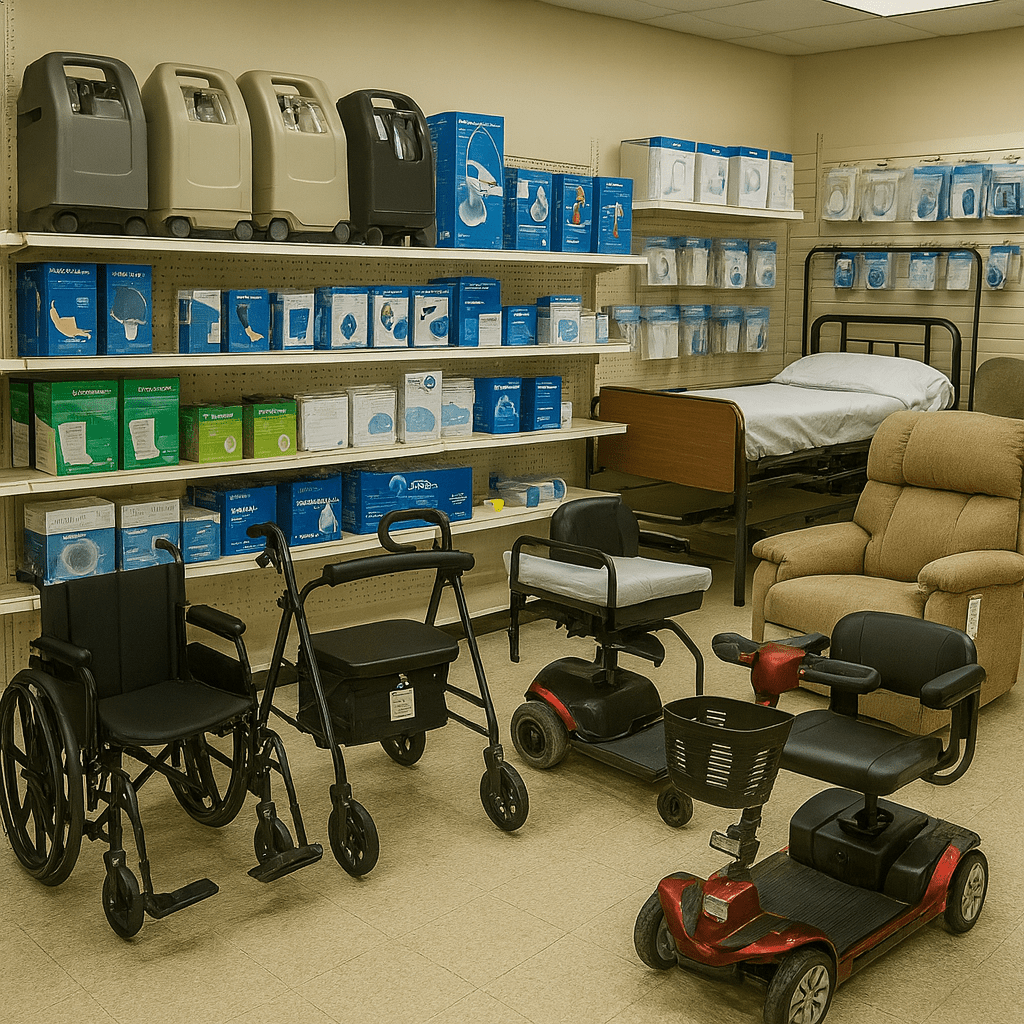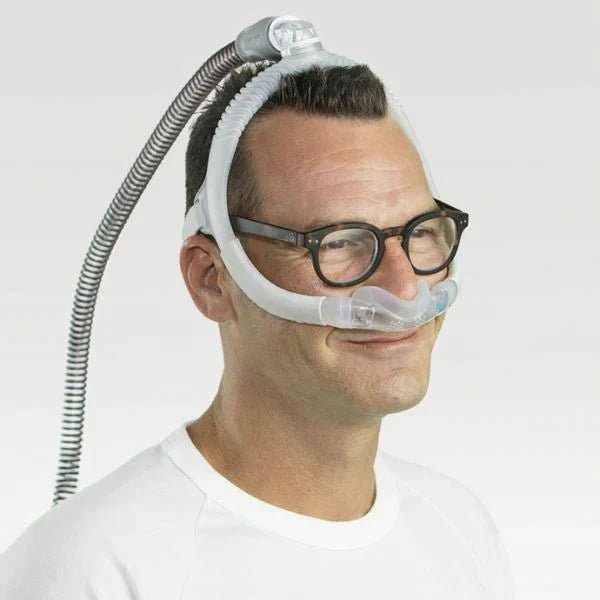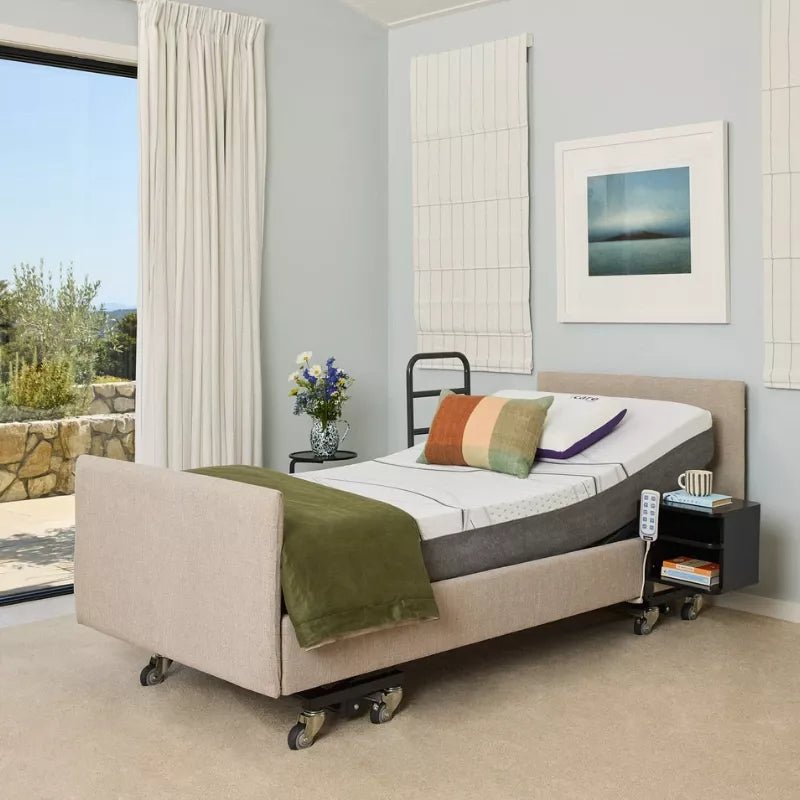Choosing a PAP (Positive Airway Pressure) machine is one of the most important decisions for managing sleep apnea. The most common options are CPAP, BiPAP, and APAP—each serving different needs. Let’s break down how they work, who they’re best for, and how to choose the right one.
CPAP (Continuous Positive Airway Pressure)
How It Works:
A CPAP machine delivers a constant stream of air pressure throughout the night to keep your airway open. It maintains a fixed level of air pressure set by your doctor based on your sleep study results.
Best For:
Individuals with mild to moderate obstructive sleep apnea (OSA) who require a steady, consistent pressure.
Advantages Explained:
- Simplicity: The single pressure setting makes it easy to use and maintain.
- Affordability: CPAPs are typically the most budget-friendly and widely covered by insurance providers.
- Effectiveness: Proven to significantly reduce apnea episodes and improve sleep quality.
Disadvantages:
- Exhalation Discomfort: Some users find it hard to exhale against the constant pressure.
- Lack of Adaptability: It doesn’t adjust pressure if your breathing needs change during the night.
If you're looking for a top-rated CPAP model, the ResMed AirSense 11 is a premium option known for comfort, smart features, and quiet performance.
BiPAP (Bilevel Positive Airway Pressure)
How It Works:
BiPAP machines offer two pressure settings: one for inhaling (IPAP) and a lower one for exhaling (EPAP). This setup makes breathing feel more natural and comfortable, especially for users who struggle with fixed pressure.
Best For:
People with central sleep apnea (CSA), those requiring high pressure, or patients with underlying respiratory conditions like COPD.
Advantages Explained:
- Comfortable Breathing: The lower exhalation pressure reduces breathing resistance.
- Customizable: Perfect for users who need more advanced pressure support.
- Enhanced Support: Often used in hospital or advanced home settings due to its respiratory benefits.
Disadvantages:
- Higher Cost: BiPAPs are generally the most expensive of the three.
- More Complex Settings: Requires careful adjustment and monitoring by a professional.
-
Less Portable: Slightly larger, making it less convenient for frequent travelers.
APAP (Auto-Adjusting Positive Airway Pressure)
How It Works:
APAP machines automatically adjust the pressure throughout the night based on your breathing patterns. The device uses built-in sensors to respond to apneas, hypopneas, or other interruptions.
Best For:
New CPAP users, patients with changing pressure needs, or those who find fixed pressure settings uncomfortable.
Advantages Explained:
- Dynamic Comfort: Automatically increases or decreases pressure as needed for optimal therapy.
- Reduced Pressure When Not Needed: Helps you sleep more comfortably without over-pressurizing.
- Ease of Use for Starters: Good option if you haven’t found the right pressure setting yet.
Disadvantages:
- Cost: More expensive than standard CPAP machines.
-
Sensitivity: Some users may find constant pressure adjustments slightly disruptive at first.
Comparison Table: CPAP vs BiPAP vs APAP
|
Feature |
CPAP |
BiPAP |
APAP |
|
Pressure Type |
Single fixed pressure |
Two levels: inhale/exhale |
Auto-adjusting based on breathing |
|
Comfort Level |
Moderate |
High |
Very High |
|
Use Case |
Mild/moderate OSA |
Central apnea, high pressure |
Variable pressure needs, new users |
|
Price Range |
$ |
$$$ |
$$–$$$ |
|
Portability |
Excellent |
Good |
Excellent |
Choosing the Right Machine for Your Needs
When making your choice, consider the following:
-
Medical Condition:
CPAP is great for basic OSA. BiPAP suits patients with more complex needs. APAP adapts to nightly changes in breathing.
-
Pressure Comfort:
If you struggle to exhale with CPAP, BiPAP’s lower exhalation pressure may help. APAP fine-tunes pressure throughout the night.
-
Lifestyle and Portability:
CPAP and APAP machines tend to be smaller and more travel-friendly. BiPAP machines are slightly larger but provide more power.
-
Budget and Insurance:
CPAP is most affordable and widely covered. BiPAP may require more paperwork or justification. APAP usually sits in the middle.
What to Do Before Buying
- Consult a Sleep Specialist: Always start with a sleep study and professional recommendation.
- Compare Insurance Coverage: Confirm which devices and supplies are covered under your plan.
- Try Different Masks: Comfort can make or break your therapy—choose the one that feels best.
- Consider Noise and Size: Look for quiet operation and compact size if you’re a light sleeper or travel frequently.
-
Assess Replacement Costs: Factor in filter, tubing, and mask replacement over time.
Maintenance Tips for Long-Term Use
- Daily: Clean your mask and empty the humidifier chamber.
- Weekly: Clean tubing and reusable filters thoroughly.
- Monthly: Replace disposable filters and inspect your mask cushion for wear.
- Quarterly: Replace tubing, headgear, and humidifier chamber if needed.
Consistent maintenance helps prevent bacteria buildup and keeps your therapy effective and safe.
Where to Buy Trusted Machines and Supplies
For genuine CPAP, BiPAP, and APAP machines along with accessories, check out our trusted medical equipment store. We offer FDA-approved products, helpful customer support, and everything you need for ongoing care.
Final Thoughts
Each PAP machine offers unique benefits. CPAP is affordable and effective for most users. BiPAP adds comfort for more complex needs, while APAP provides adaptability for variable sleep patterns. The best choice depends on your diagnosis, comfort level, and lifestyle.
FAQ's
What’s the difference between CPAP and APAP?
CPAP delivers a fixed pressure, while APAP automatically adjusts pressure levels throughout the night.
Is BiPAP better than CPAP?
It depends. BiPAP is better for people who need higher pressure support or have trouble exhaling.
Which machine is easiest to travel with?
Most CPAP and APAP models come in lightweight, portable designs with travel cases.
Can I switch machines if one isn’t working?
Yes, but always consult your doctor and insurance provider before switching from CPAP to BiPAP or APAP.
How long do these machines last?
With proper care, most machines last 3 to 5 years or longer.









